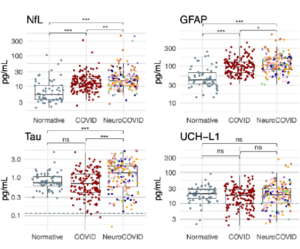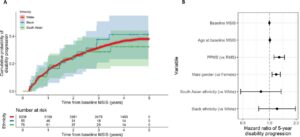
Conditions: “AD Only” = none of the other listed comorbidities, gross infarcts, old microinfarcts, nor old cerebral hemorrhages; “NPLBOD” = Lewy body disease; “NPHIPSCL” = hippocampal sclerosis; “TDPNOS” = TDP-43 pathology in amygdala, hippocampus, or entorhinal area; NPFTDTAU = other non-AD tauopathy.
Diego Sepulveda-Falla, et al. – University Medical Center Hamburg-Eppendorf.
This study examined the rates of brain pathology comorbidities in patients who had early-onset AD. By focusing on younger patients, the observed comorbidities are more likely to be due to AD pathology, rather than a consequence of aging. Additionally, comparing subjects with PSEN1 variants with those with sporadic AD provided the opportunity to determine if these groups differ in their comorbidity risk. Over 70% of patients had at least one comorbidity, with over half of subjects having Lewy body pathology. As these comorbidities may dull the impact of treatments directed at AD pathology, they should be taken into account when designing and assessing the efficacy of clinical trials.





